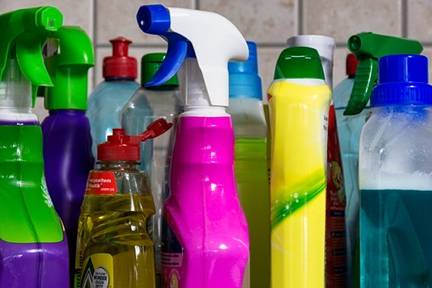Disinfectant Use May Increase Nurses’ Risk of COPD, Study Finds
 The use of chemical disinfectants may increase the risk of chronic obstructive pulmonary disease (COPD) in nurses, suggests a new study, “Association of Occupational Exposure to Disinfectants With Incidence of Chronic Obstructive Pulmonary Disease Among U.S. Female Nurses, published in JAMA Network Open.
The use of chemical disinfectants may increase the risk of chronic obstructive pulmonary disease (COPD) in nurses, suggests a new study, “Association of Occupational Exposure to Disinfectants With Incidence of Chronic Obstructive Pulmonary Disease Among U.S. Female Nurses, published in JAMA Network Open.
While smoking remains the primary cause of COPD, exposure to health-hazardous substances found in dust, vapor, gases, and fumes may exacerbate as many as a fifth of all COPD cases. Exposure to cleaning products, particularly disinfectants, may also increase the risk of COPD. The latter studies focused mainly on those whose jobs are explicitly cleaning rather than people working in other fields in which disinfectants are commonly used, including healthcare.
Thus, in the JAMA Network Open study, researchers analyzed the incidence of COPD among nurses in the U.S. who were regularly exposed to disinfectants. The study examined self-reported data from more than 73,000 female nurses, with an average age of 54, who did not have COPD. Nearly a third (28%) were former smokers, and only 6% were current smokers. Of the nurses included, 23% reported using disinfectants only to clean surfaces, and 19% said they used them to clean medical instruments.
In all, 582 nurses were diagnosed with COPD by the end of the study period – from 2009 through 2015. Using statistical models, investigators assessed the relative risk of developing COPD based on exposure to disinfectants. Nurses who used any disinfectant weekly had a 35% increased risk of developing COPD. Among those who reported using disinfectants more often (four days per week or more), the risk increased by 43%.
Notably, higher risk followed exposure to hypochlorite bleach or hydrogen peroxide, which are known to cause cell damage.
For more information about the study, check out the result, and additional information at COPD News Today.

